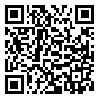Abstract: (60 Views)
Introduction: The use of virtual social networks as one of the new tools of information and communication technologies has been greatly welcomed in recent years. The present study was conducted with the aim the role of attitude towards virtual education on learning anxiety and academic burnout in students in 2022.
Method: The current research is applied in terms of its purpose and descriptive in terms of correlational research method. The statistical population includes all students of Bushehr University of Medical Sciences who were studying in 2021-2022 and 331 people were selected as a sample using simple random sampling method. In order to collect the required data, the questionnaires of attitude towards virtual education, Pakran's learning anxiety, and academic burnout by Bresso and colleagues were used.
Findings: Data analysis was done by multivariate regression and Pearson correlation coefficient. The results showed that there is no relationship between attitude towards virtual education and learning anxiety and academic burnout (P<0.05).
Discussion: According to the research findings learning anxiety does not have a positive effect on students' academic burnout, while there is no relationship between the attitude towards virtual education and learning anxiety and academic burnout. However, more than half of the participants had a positive attitude towards virtual education, also most people had moderate and high learning anxiety and had a moderate academic burnout score.
Introduction: The use of virtual social networks as one of the new tools of information and communication technologies has been greatly welcomed in recent years. The present study was conducted with the aim the role of virtual education on learning anxiety and academic burnout in students in 2022.
Method: The current research is applied in terms of its purpose and descriptive in terms of correlational research method. The statistical population includes all students of Bushehr University of Medical Sciences who were studying in 2021-2022 and 331 people were selected as a sample using simple random sampling method. In order to collect the required data, the questionnaires of attitude towards virtual education, Pakran's learning anxiety, and academic burnout by Bresso and colleagues were used.
Findings: Data analysis was done by multivariate regression and Pearson correlation coefficient. The results showed that there is no relationship between attitude towards virtual education and learning anxiety and academic burnout (P<0.05).
Discussion: According to the research findings learning anxiety does not have a positive effect on students' academic burnout, while there is no relationship between the attitude towards virtual education and learning anxiety and academic burnout. However, more than half of the participants had a positive attitude towards virtual education, also most people had moderate and high learning anxiety and had a moderate academic burnout score.
Method: The current research is applied in terms of its purpose and descriptive in terms of correlational research method. The statistical population includes all students of Bushehr University of Medical Sciences who were studying in 2021-2022 and 331 people were selected as a sample using simple random sampling method. In order to collect the required data, the questionnaires of attitude towards virtual education, Pakran's learning anxiety, and academic burnout by Bresso and colleagues were used.
Findings: Data analysis was done by multivariate regression and Pearson correlation coefficient. The results showed that there is no relationship between attitude towards virtual education and learning anxiety and academic burnout (P<0.05).
Discussion: According to the research findings learning anxiety does not have a positive effect on students' academic burnout, while there is no relationship between the attitude towards virtual education and learning anxiety and academic burnout. However, more than half of the participants had a positive attitude towards virtual education, also most people had moderate and high learning anxiety and had a moderate academic burnout score.
Introduction: The use of virtual social networks as one of the new tools of information and communication technologies has been greatly welcomed in recent years. The present study was conducted with the aim the role of virtual education on learning anxiety and academic burnout in students in 2022.
Method: The current research is applied in terms of its purpose and descriptive in terms of correlational research method. The statistical population includes all students of Bushehr University of Medical Sciences who were studying in 2021-2022 and 331 people were selected as a sample using simple random sampling method. In order to collect the required data, the questionnaires of attitude towards virtual education, Pakran's learning anxiety, and academic burnout by Bresso and colleagues were used.
Findings: Data analysis was done by multivariate regression and Pearson correlation coefficient. The results showed that there is no relationship between attitude towards virtual education and learning anxiety and academic burnout (P<0.05).
Discussion: According to the research findings learning anxiety does not have a positive effect on students' academic burnout, while there is no relationship between the attitude towards virtual education and learning anxiety and academic burnout. However, more than half of the participants had a positive attitude towards virtual education, also most people had moderate and high learning anxiety and had a moderate academic burnout score.
Article number: 4
Keywords: academic burnout, attitude towards virtual education, learning anxiety, students, e-learning
Type of Study: orginal |
Received: 2023/05/7 | Accepted: 2024/07/22
Received: 2023/05/7 | Accepted: 2024/07/22
Send email to the article author
| Rights and permissions | |
 |
This work is licensed under a Creative Commons Attribution-NonCommercial 4.0 International License. |






